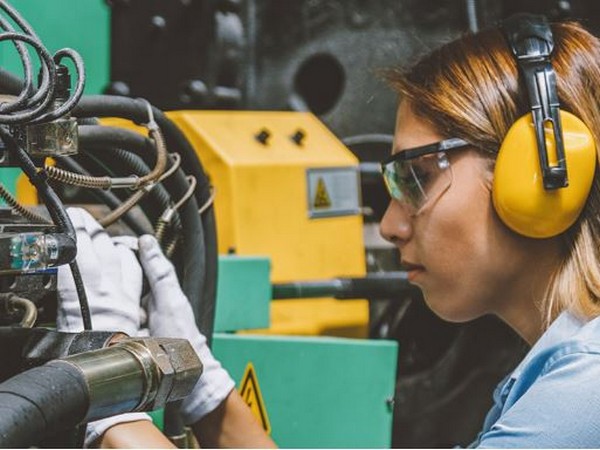Universal Robots in A Manufacturing Setting

Business acumen requires that the entrepreneur ensures that costs do not go over the roof and outweigh the profit margin. Creating a competitive product is essential, but making the product available to consumers at fair prices without compromising on quality sets you apart from the competition.
Product line automation enables an organization to increase efficiency and ingenuity without compromising craftsmanship. Automated production line organizations are never worried about decreased staff-hours due to sickness and work-related injuries. Production will remain high regardless of missing employees, and the quality of products will remain good.
Automation in robots mimics human arm movements, thus doing away with manual operators in a production line without necessarily compromising on the yield. However, automation does not make good employees redundant; it negates them from repetitive processes that would otherwise result in stress injuries in the workplace.
This review will look at why robots are a crucial part of a manufacturing setting and also other uses of robots in an industry such as palletizing, pick and place operations, boxing, and plenty more besides.
Why is the Application of Robots Is Crucial in Manufacturing?
Efficiency
Robots will also help to make the manufacturing process more efficient. The ability to engage in repetitive procedures over and over again ensures that the process does not use as much energy and raw materials as it would have otherwise consumed.
Consistency
These packaging machines are capable of enhancing product quality and cycle time as well. Since the movements in these machines are standardized, the quality of operations is sure to increase, and processes will have a seamless flow.
Flexibility
One of the benefits of robots in packaging is flexibility. By incorporating robotics, a line operator can easily and quickly alter the shape of a pallet or case by simply clicking a button, and the procedure is done. This task will take longer if done manually by an operator, and it will also be harder to execute.
Accuracy
Robots meant for the packaging industry are made to be sturdy and have precision tooling that makes them accurate when executing tasks. For instance, pick and place robots are outfitted with arms that have a broad reach and rotate at the wrists in similar motions. This makes these machines ideal in packaging and supply chain procedures.
Some of The Other Uses of Robots in An Industry
Palletising
Packaging involves taking boxes of products and readying them for shipping by placing them on pallets. Palletising is a widespread robotic application in the food and beverage industry. In such sectors, robots can boost production. They also alleviate stress injuries to manual operators as a result of repetitive tasks such as palletising.
Pick & Place Operations
Automated food processing operations will produce goods that are randomly placed and distributed. Therefore, robots are a prevalent option of packaging randomly place goods. With one click, these machines can align, pick and place the product at the desired location.
The alternative to using robots in pick and place operations would be fixturing, which is very inflexible to altering the position of goods in a production line, and it takes a lot of floor space too.
Depanning
Ejecting pastry from a baking tray is very tedious and doing so on a large scale is even harder. Robots can seamlessly eject pastries from trays seamlessly without damaging the items and also head on to pack them in specific boxes depending on their sizes.
Boxing
After items have been depanned and denested, they are ready to be put in boxes ready for shipment to the desired destination. The robotic arm is also agile enough to be able to pick up items such as eggs in mass and box them without causing breakage.
Conclusion
All in all, robots are very useful machines in any given manufacturing setting, as we have seen above. Automation of these machines will make them better and ensure these machines can run with minimal supervision for the entire day.
(Disclaimer: The opinions expressed are the personal views of the author. The facts and opinions appearing in the article do not reflect the views of Devdiscourse and Devdiscourse does not claim any responsibility for the same.)
- READ MORE ON:
- Manufacturing robots
- robots in Manufacturing
- factory robots










